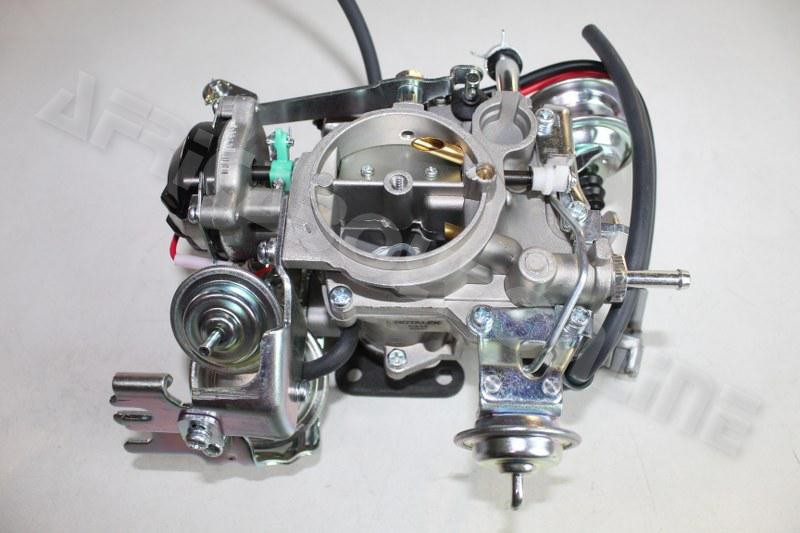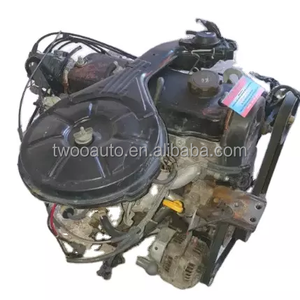Toyota Tazz: A Smart Investment for Those Seeking Low-Cost Maintenance
Toyota Tazz: A Smart Investment for Those Seeking Low-Cost Maintenance
Blog Article
Discover the most up to date Trends in Engine Innovation Through Tazz
In the quickly progressing landscape of auto technology, Tazz stands at the leading edge, highlighting substantial advancements in engine systems that prioritize both development and sustainability. tazz. From hybrid engines that maximize gas efficiency to the emergence of hydrogen gas cells, the fads shaping contemporary powertrains are not just boosting performance but likewise addressing critical ecological challenges. As the market proceeds to press limits, it is important to take into consideration just how these growths will affect future transportation solutions and the wider implications for international power usage. What exists in advance in this critical makeover?
Crossbreed Engine Innovations
Crossbreed engine innovations represent a critical change in vehicle technology, combining the benefits of interior combustion engines with electrical propulsion systems. This combination not only enhances fuel performance but also decreases exhausts, conference progressively rigid ecological policies. By using both power resources, hybrid engines can enhance performance, delivering power when needed while saving fuel during less demanding motoring conditions.
Recent advancements in crossbreed modern technology include renovations in battery efficiency and regenerative stopping systems. These technologies enable higher energy healing throughout deceleration, which can be rerouted to assist in velocity or power accessory systems. Furthermore, makers are concentrating on lightweight materials and compact layouts to make best use of the effectiveness of hybrid powertrains.
The growth of plug-in hybrids has also broadened the market, making it possible for drivers to charge their cars using conventional electric outlets. This feature commonly permits significant all-electric array, more decreasing dependancy on traditional gas. tazz. As the auto industry remains to develop, hybrid engine modern technologies are anticipated to play an important function in linking the space between traditional vehicles and fully electrical designs, offering a transitional option that provides to diverse customer needs and choices
Developments in Electric Powertrains
The auto landscape is swiftly evolving, with electric powertrains becoming a leading pressure in lasting transportation. Advancements in electric vehicle (EV) technology are significantly enhancing customer, performance, and performance experience. Key innovations consist of renovations in battery chemistry, which have boosted energy density, reduced charging times, and prolonged general battery life.
Solid-state batteries, for instance, promise to revolutionize the marketplace by offering greater safety and security and performance compared to standard lithium-ion cells. Moreover, improvements in regenerative braking systems are allowing lorries to recuperate power during deceleration, adding to overall efficiency.
Along with battery innovation, electric motor designs are becoming much more sophisticated. Innovations such as incorporated motors and advanced thermal administration systems are aiding to optimize power delivery and reduce weight, ultimately boosting car characteristics.

Jointly, these developments underscore the commitment to transition towards cleaner, much more efficient transportation options, placing electric powertrains at the center of automotive development.
The Surge of Hydrogen Gas Cells
Significantly, hydrogen gas cells are gaining traction as a practical alternative to traditional internal combustion engines and battery electrical automobiles. This technology uses the chemical power kept in hydrogen, converting it into power through an electrochemical response with oxygen. The primary by-product of this procedure is water, making hydrogen gas cells an eco-friendly alternative with no exhausts at the tailpipe.

Car manufacturers are progressively investing in hydrogen fuel cell modern technology, acknowledging its potential for long-range applications and rapid refueling capacities that measure up to view it traditional fuels. Furthermore, sectors such as heavy-duty transportation and public transportation are especially well-suited for hydrogen gas cells, where battery electrical options may fail due to weight and array constraints.
As research study and financial investment continue to increase, hydrogen gas cells are poised to play a substantial role in the future landscape of clean transport and power options.
Enhancements in Internal Combustion Engines
Innovations in internal combustion engine (ICE) innovation are transforming conventional automobiles to satisfy contemporary environmental standards and efficiency assumptions. Straight fuel injection, for circumstances, allows for far better atomization of fuel, leading to even more total burning and boosted power output.
In addition, turbocharging has obtained prominence, permitting smaller engines to supply greater performance without the weight of bigger engines - tazz. This innovation not just increases efficiency but likewise adds to lower fuel consumption. Variable valve timing systems are additionally being improved, enabling engines to adapt to various driving conditions for enhanced torque and responsiveness
Furthermore, making use of lightweight products in engine construction is coming to be typical, more enhancing gas effectiveness by minimizing total vehicle weight. Engine control systems (ECUs) are significantly innovative, allowing real-time modifications that enhance performance and emissions.
These improvements collectively indicate a critical shift in ICE innovation, lining up with global sustainability objectives while still giving the efficiency vehicle drivers get out of their cars. As the sector progresses, these improvements continue to shape the future of conventional automotive engineering.
Future Fads in Engine Efficiency
Substantial advancements in engine effectiveness investigate this site are anticipated as manufacturers concentrate on incorporating sophisticated innovations to fulfill stringent environmental guidelines and customer needs. The shift in the direction of electrification, hybrid systems, and different fuels is reshaping the automobile landscape, driving developments that enhance fuel economic climate and reduce exhausts.
One of the crucial patterns is the execution of advanced products and making techniques. High-strength alloys and lightweight compounds add to reduced lorry weight, therefore enhancing general efficiency. Furthermore, the adoption of turbocharging and variable valve timing modern technologies enables boosted power outcome from smaller engines, additionally improving fuel economic climate.

Final Thought
Finally, the expedition of engine modern technology exposes considerable improvements that prioritize sustainability and effectiveness. Innovations in hybrid engine systems, electrical powertrains, and hydrogen gas cells show a dedication to decreasing exhausts while boosting efficiency. Enhancements in inner burning engines and an emphasis on lightweight products add to total engine effectiveness. As the automotive market proceeds to advance, these trends will certainly play a critical role in forming a cleaner and more lasting future for transport.
From hybrid engines that maximize gas effectiveness to the appearance of hydrogen fuel cells, the trends shaping contemporary powertrains are not only enhancing performance but likewise dealing with essential ecological difficulties.Hybrid engine technologies represent an essential shift in automotive modern technology, integrating the advantages of internal combustion engines with electric propulsion systems.In addition, turbocharging has actually acquired prominence, allowing smaller engines to supply greater efficiency without the weight of larger engines. Additionally, the adoption of turbocharging and variable shutoff timing modern technologies enables for boosted power output from smaller sized engines, even more improving gas economic situation.
Improvements in internal burning engines and an emphasis on lightweight materials add to overall engine efficiency.
Report this page